Henry BOC Votes Tuesday on Massive Fiber Optic Plan
By Joan Scott
On Tuesday morning, January 5 at 9:00 a.m., while most of us are working and unable to attend, the Henry County Board of Commissioners will hold a meeting to vote on a $14 million resolution to construct, operate and maintain a “community-owned” Fiber Optic Broadband Network. In other words, they want to become an Internet Service Provider and they want you to pay for it.
Chairman B.J. Mathis touts this as a cost-saving measure that would rid our schools and other county government offices of the data-connectivity costs of doing business with private sector providers such as AT&T and Charter.
In addition, the County owned fiber network would, says the BOC, also have the capability to serve small and large businesses in Henry County, where there are currently no direct fiber options available to our business community.
But history shows that municipally owned telecommunications systems ultimately become a ball and chain to their taxpayers. This will be no different in Henry County and will leave taxpayers on the hook for years to come.
Misuse of The Stimulus Act
Just to be clear, the $14 million price tag is a conservative estimate according to the feasibility study commissioned by the BOC in September. And, they say the project to lay 180 miles of fiber optic lines over a two year period will be paid for using funds from the Stimulus Act, but not before they put us on the hook for it with bonded debt first.
The $787 billion American Recovery and Reinvestment Act set aside $7.2 billion to bridge the digital divide and provide poor citizens with online access. It is intended for projects that establish broadband service for the first time to “unserved” area and to enhance services in “under-served” rural areas. Henry County is neither of those.
And, just in case the BOC hasn't been paying attention to the Tea Party protests, the stimulus spending is borrowed and printed money that our children and grandchildren will be burdened with repaying. So, why don't we just not spend it to begin with, instead of pretending that it's free money given to us by the federal government.
Track Record of Failure
According to a March 2009 policy paper by Americans For Prosperity titled “Municipal Broadband's Record of Failure” the results of recent projects that have already been undertaken, almost without exception, have been overwhelmingly negative.
They had this to say about a 2005 project in Philadelphia, PA:
“While the city struggled to get the system in place, the private sector forged ahead with innovation; in three short years the entire project was out of date”.
After two years and running 30% over budget a group of private investors completed the project with the help of some non-profit organizations.
In a related op-ed that ran in the Atlanta Journal Constitution in March of this year, Philadelphia city councilman Frank Rizzo warned this of municipal broadband experiments:
If federal policymakers now allow the stimulus funds to be used on highly experimental and speculative taxpayer-financed municipal networks — particularly where there already is broadband service and where the municipal networks thereby face daunting economics — they will be inviting the kind of pork and waste that President Obama has forsworn.
AFP also cites similar projects in Chicago, IL and Houston, TX that failed because private internet service providers were already effectively serving the area.
And, says AFP, smaller cities, too, have made the mistake of underestimating telecommunications cost and competition.
Lompoc, CA signed up only 281 customers for their municipally owned wireless network after estimating they'd need at least 4,000 to break even. In the mean time the taxpayers are having to subsidize its operation.
Ashland, OR incurred a $15.5 million dollar deficit when it folded its cable TV business.
St. Cloud, FL taxpayers opted to pay higher fees to private providers rather than put up with government mismanagement of their wireless network.
Apparently, Chairman Mathis thinks things would be different here in Henry County.
Free Market Competition
Right out of the box there simply will not be enough subscribers (residential and business) to pay for the network because high quality, low cost, free market services are already available in this area. These include Clear, AT&T, Charter, and Comcast to name a few.
While these companies continue to innovate, develop and upgrade equipment and services to meet consumer needs, I don't see any of them rushing into Henry County to lay fiber optic cable. The Henry BOC, however, claims a supposed demand exists for it simply because one Fortune 500 company decided they couldn't locate here without it.
The Information Technology & Innovation Foundation (ITIF), a non-partisan think tank whose mission is to formulate and promote public policies to advance technological innovation and productivity, in March of 2009 had this to say about municipal broadband projects (page 17):
“The promise of affordable, ubiquitous fiber broadband service and the potential economic development opportunities that come with it are so enticing that a number of cities are considering the municipal fiber route. But despite the promises of municipal fiber, the actual success rate of these community fiber projects has been lukewarm at best and in many cases a failure at worst.”
They go on to say DSL and cable technologies have yet to reach their ceiling performance, which when increased incrementally based on market demands, is more cost-efficient.
So, as I see it, if the county can't keep up with these innovations it makes them a poor competitors. But, if the investments are made, the cost of sustaining this massive project will necessarily need to be subsidized with other tax dollars. This might be in the form of higher water or other utility costs or another rise in property, sales, or some other tax. That, by definition, is a form of wealth distribution.
This project will start out in debt and remain that way indefinitely. I urge all Henry County citizens to contact the Board of Commissioners and voice their opposition to this wasteful experiment.






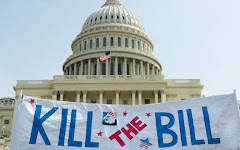





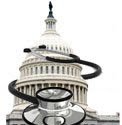.jpg)








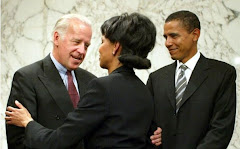








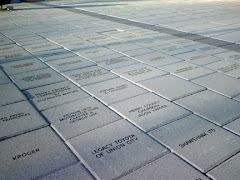

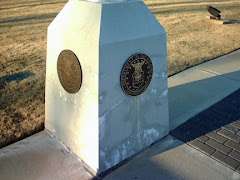












2 comments:
It is true that this project will likely begin in debt and remain that way. This is another one of those bottomless pits to send money to that have been tied to Mathis before. Nash Farm has been nothing but a money pit. This is a project that would help break the county and the county leadership will come along wanting more money to keep this project afloat.
Late breaking word that some of the District Commisioners can't attend tomorrow due to "conflicting schedules" and this vote has been tabled for another time. Let's keep the pressure on!
Post a Comment